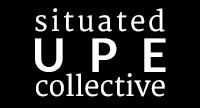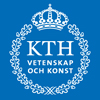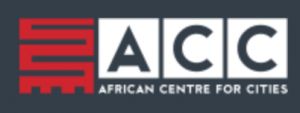Check out a 5 minute ‘teaser’ of the film “1 Table 2 Elephants” that we are finalising in 2017. Filmed in Cape Town in 2015, it deals with ways of knowing urban ecologies in postapartheid and postcolonial cities. It’s created by Jacob von Heland and Henrik Ernstson, produced in collaboration with KTH and UCT and funded by Formas.
Many-layered city-nature
Entering the city through its plants and wetlands, the many-layered, painful and liberating history of the city emerges as we meet how biologists, hip hoppers, and wetland activists each searches for ways to craft symbols of unity and cohesion. But this is a fraught and difficult task. Perhaps not even desirable. Plants, aliens, memories and ghosts keep troubling efforts of weaving stories about this place called Cape Town.
The film tries to be a vehicle for more general conversations about history/histories, post/de-colonization and the caring for nature, city, people and oneself. Its directed towards a wide audience, from the general public to students and scholars. When ready during 2017 it will be 75 minutes long. Watch the 5 minutes ‘teaser’ below.
A wider repertoire for doing urban political ecology
The film forms part of an effort to build a wider repertoire of practices on how to approach urbanisation, cities and environmental politics, a repertoire we have called Situated Ecologies [1]. This is a multi-faceted approach that includes historical research and ethnographic practices, but also collaborations with filmers, artists, philosophers and designers. We believe these collaborations can help to trouble more conventional social and natural scientific practices, and create different ‘outputs’ or artefacts to facilitate wider, richer and thoroughly political conversations about urban ecology.
This film explores ontological politics and urban political ecology in postcolonial and postapartheid contexts. But it also speaks beyond its own local context. As often through the medium of film, the peculiar—and in some cases, the utter strangeness of Cape Town—becomes something that can travel and be translated. The film tries to be this ‘vehicle of translation’ from one context to another and provides material for discussions about our own cities, lives and collective struggles.
The film will be ready during 2016. Keep checking this space (or @rhizomia or @SituatedEcologies) and we will let you know. We have screened early work-in-progress versions in South Africa, California, Sweden and soon in Namibia.
/Henrik and Jacob.
Facts about “1 Table 2 Elephants” : Created by: Jacob von Heland and Henrik Ernstson. Produced by: Telltales Film in collaboration with KTH Environmental Humanities Laboratory and the African Centre for Cities at the University of Cape Town. Photography: Johan von Reybekiel. Sound: Jonathan Chiles. Funded by: Swedish Research Council Formas. Production coordination: Jessica Rattle and Nceba Mangese. More info: situatedecologies.net/projects.
———-
[1] This is a blog post and not a scholarly text, but to outline some of the inspirations behind ‘situated ecologies’, I can mention: Donna Haraway’s crucial work on situated knowledges from 1988; Urban Political Ecology and its use of socio-natures, cyborgs and its interest in emancipatory politics (Erik Swyngedouw, Matthew Gandy); postcolonial and decolonial scholars (e.g. Gayatri Spivak, Dipesh Chakrabarty); global South urbanism (AbdouMaliq Simone, Ananya Roy, Jennifer Robinson and others); and work on ontological politics, material semiotics and actor-networks (Isabelle Stengers, Sarah Whatmore, John Law, Ann-Marie Mol, Bruno Latour).



